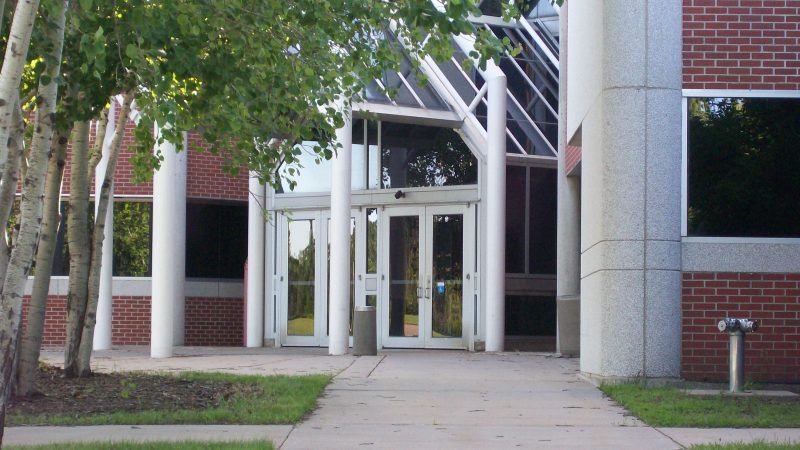To Stop Spread of Hateful Messages, Iowa State University Restricted Sidewalk Chalk
The policy has earned a well-deserved First Amendment lawsuit.

Iowa's critically important Democratic presidential caucus is just weeks away, but students at Iowa State University (ISU) are facing serious restrictions on their ability to advocate for and against various candidates and policies due to an absurd and possibly unconstitutional ban on offensive sidewalk chalking.
The policy, implemented in November, states that only registered student organizations may write chalk messages on campus sidewalks. These messages may not editorialize: They can only advertise upcoming events, citing names, locations, and other logistical details. And they can only be seven words long.
ISU President Wendy Wintersteen did not immediately respond to a request for comment, but told Inside Higher Ed that the school "fully embraces its role as a First Amendment campus and is deeply committed to constitutional protections of free expression." Nevertheless, she claims the policy is a necessary effort to combat the spread of hateful and bigoted chalk messages that have appeared on sidewalks and perturbed some students.
Not all students agree. The university's College Republicans oppose the policy, arguing that it restricts political messaging.
The College Democrats, on the other hand, were disappointed to lose the ability to promote their candidates via chalking, but said that "if restricting [chalking] can reduce incidents of hate-filled messages on campus, the organization would prefer students feel safe," according to Inside Higher Ed.
"Making sure our campus is a safe and welcoming place for all, but particularly for people of marginalized identities, is extremely important to the ISU College Democrats," said the group in a statement. "We welcomed the temporary chalking policy as an immediate solution to stop the hateful, racist, neo-Nazi, transphobic, homophobic and anti-Semitic messages that were overwhelming our campus this past fall…Iowa State does not have a free speech problem—we have a white supremacist problem."
The policy was introduced following incidents of racist and transphobic chalkings on campus. A student activist group, ISU Students Against Racism, demanded zero tolerance for anyone caught writing such statements.
Seeing hateful messages is no doubt unpleasant, but Iowa State is a public university and its desire to suppress hateful speech does not supersede students' First Amendment right to express political speech on campus. The policy has thus earned a well-deserved legal challenge from Speech First, a legal advocacy group that defends free speech and due process on campuses.
"Iowa State University and its officials have created a series of rules and regulations that restrain, deter, suppress, and punish speech about the political and social issues of the day," wrote Speech First lawyers in a preliminary injunction that seeks to halt the policy.
The Speech First lawsuit also objects to ISU's bias incident reporting system, as well as a little known policy that prohibits the use of university email addresses for political causes. The latter of these is rarely, if ever, enforced, according to the administration.
The chalking policy, though, is a significant restriction on campus free speech at a particularly pivotal moment for political expression. The university should move swiftly to repeal this egregious restriction.


Show Comments (55)